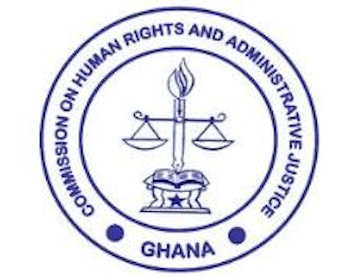Stop media trial of corruption cases – CHRAJ
 The Commission on Human Rights and Administrative Justice (CHRAJ), has underlined the need for Ghanaians, particularly politicians to desist from media trial of corruption related cases especially involving high profile political figures.
The Commission on Human Rights and Administrative Justice (CHRAJ), has underlined the need for Ghanaians, particularly politicians to desist from media trial of corruption related cases especially involving high profile political figures.
Mr Tetteh Tuwor, the Acting Central Regional Director of the Commission, stated that such media trials and persecutions though did not have any influence on the decisions of the courts, often created political tension and anxiety.
He was speaking in an interview with the Ghana News Agency in Cape Coast on Monday.
His admonition came on the back of claims by some political big-wigs that the recent alleged corruption suit brought against Dr. Stephen Opuni, former Chief Executive Officer of COCOBOD among others was political witch-hunt.
But he pointed out that, the 1992 Constitution of Ghana guaranteed the rights and freedoms of all citizens, adding that a person charged with a criminal offence shall be given a fair hearing within a reasonable time by a competent court of jurisdiction.
He added that “one of the most basic principles in the Ghana legal system is that a person who is accused of a crime is innocent until proven guilty. This principle is the bedrock of our criminal justice system, and should be remembered by everyone who is involved in a criminal case as well as social commentators”.
In that regard, he advised the media to be circumspect in handling legal, constitutional and court issues on their programmes and endeavour to educate the public to enlighten them on the need to desist from passing sentences on such issues before the courts do so, infringing upon the rights of such people in the process.
Mr Tuwor observed that the menace of corruption and the perception of its widespread prevalence, threatened the values of transparency, equal justice and judicial equity.
He noted that the secrecy that shrouded such ungodly, criminal and unethical conduct made it more difficult to detect, control, punish and prevent its occurrence.
Espousing some consequences of corruption, he said the menace remained a setback to the nation’s peace, security and development.
It also affected Government’s ability to provide some basic social infrastructure to enhance teaching and learning in schools because funds that could be used for such development projects have been siphoned by people seeking their personal interest.
He charged Ghanaians to take a sober reflection on the extent of corruption in the country and its effects on the economy and called on the public to report any corrupt official to the CHRAJ, Police or appropriate quarters for redress.
Nonetheless, he indicated that the Commission will continue to engage the citizenry to take action against corruption and make corruption reporting more convenient for citizens so as to increase reporting of such cases.
He pointed out that the Commission was working with a number of groups through the National Anti-corruption Action Plan (NACAP) to champion the course of anti-corruption in the regions and districts across the country.
With NACAP, the Commission sought to promote and protect fundamental human right and freedom which is grouped in two broad areas namely promoting and prevention and protecting and enforcement.
The Acting Central Regional Director of the Commission acknowledged the fact that it was necessary to school the populace on corruption to get them empowered to be able to demand the transparency, accountability, probity and participation at the local level.
The citizenry must also support the efforts to ensure the complete elimination of corruption from institutions charged to halt the practice and stop offering bribes to officials when their mandated services were required.
Citizens must refrain from the common practice of using extra legal methods to influence decisions in their favour, he said.
Source: GNA
